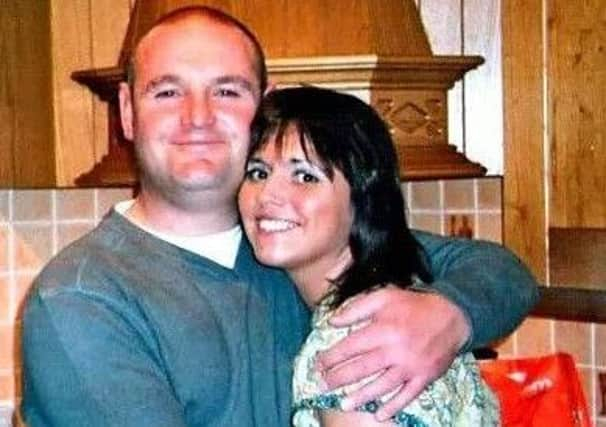Denise: ‘Why I’m fighting all the way to the Supreme Court’


Denise Brewster from Coleraine lived with her partner, Lenny McMullan, for 10 years before his death in 2009. They had got engaged on Christmas Eve.
Two days later, between Christmas night and the early hours of Boxing Day morning, Lenny - a well known figure around Coleraine - died suddenly and unexpectedly.
Advertisement
Hide AdAdvertisement
Hide AdLenny had been paying into Northern Ireland’s local government pension scheme for 15 years when he died. Had they been married, Ms Brewster would have received a £400 per month survivor’s pension.
However, Ms Brewster was told she was not entitled because of a little known requirement for cohabiting partners to complete a nomination form – which the pension scheme administrators said that Mr McMullan had failed to do.
Nicola Elmes, from Essex in south east England, found that she too was denied a survivor’s pension when her partner, David Smith, died suddenly in November 2011.
They had been together for 21 years when Mr Smith died and had two children together. Like Ms Brewster, Ms Elmes met all the criteria for receiving a survivor’s pension – however, Mr Smith had also failed to complete a nomination form and so she too was told she was not entitled.
Advertisement
Hide AdAdvertisement
Hide AdMs Elmes’ legal proceedings have been brought in the High Court in London and have been placed on hold until the outcome of the Supreme Court case.
The nomination form requirement applies only to couples who are unmarried or not in a civil partnership. Nomination form requirements appear across a wide range of public sector and private sector pension schemes but are often little known.
For example, Ms Brewster was told that nomination forms had been submitted by only 0.1% of the members of Mr McMullan’s local government pension scheme. That is a tiny percentage bearing in mind that 47% of the population in the UK are in long-term cohabiting relationships.
As part of their campaign, Ms Brewster and Ms Elmes have brought court proceedings challenging the nomination form requirement.
Advertisement
Hide AdAdvertisement
Hide AdMs Brewster’s claim succeeded before the Northern Ireland High Court, but this was overturned by a 2-1 majority in the Northern Ireland Court of Appeal.
However, the UK Supreme Court has now indicated that it will hear Ms Brewster’s case because of the wider importance of the issues involved. The Supreme Court will decide whether it is lawful to discriminate against cohabitees with rules like this. Their decision is likely to have far reaching implications.
Ms Brewster is of modest means but is unable to secure legal aid. Therefore, she has turned to an innovative new website which asks members of the public to fund public interest cases which could not otherwise be brought: www.crowdjustice.co.uk/case/cohabiting-rights/.
Only if she raises enough money will she be able pay the court fees and be able to take the risk of carrying on with her appeal.
Advertisement
Hide AdAdvertisement
Hide AdShe told The Coleraine Times: “I have found specialist discrimination lawyers (Deighton Pierce Glynn) who are willing to represent me in the Supreme Court without charging me because of the wider importance of my case.
“However, I still have to pay for the Supreme Court fees - £5,820. In addition, I will be liable for £5,000 of my opponent’s legal costs if the case fails.
“So I need a fund of £10,820 to carry on with the case – and whilst I have been able to raise some of the money needed I cannot continue with the case without additional financial support.”
Speaking about the rights of cohabitees, Ms Brewster added: “The extra hurdle of the nomination form applies only to cohabitees and serves no purpose other than to act as a trap for the unwary. People in long-term cohabiting relationships should not be discriminated against in this way.
Advertisement
Hide AdAdvertisement
Hide Ad“I feel so strongly that what has happened is not fair: no one disputes that Lenny would have wanted me to benefit from his pension contributions in the event of his death, but because he apparently failed to complete this form I have to try to manage without this support.
“The position is even worse for women with children like Nicola Elmes where the whole household is deprived of support as a result. I do not want anyone else to go through what we have been through.
It has been a real struggle to get this far with the legal case. However, I have now got to the highest court in the UK and I have the potential to make a real difference to improving the position of long-term cohabitees and their dependents.”
Please support Densie on www.crowdjustice.co.uk/case/cohabiting-rights/